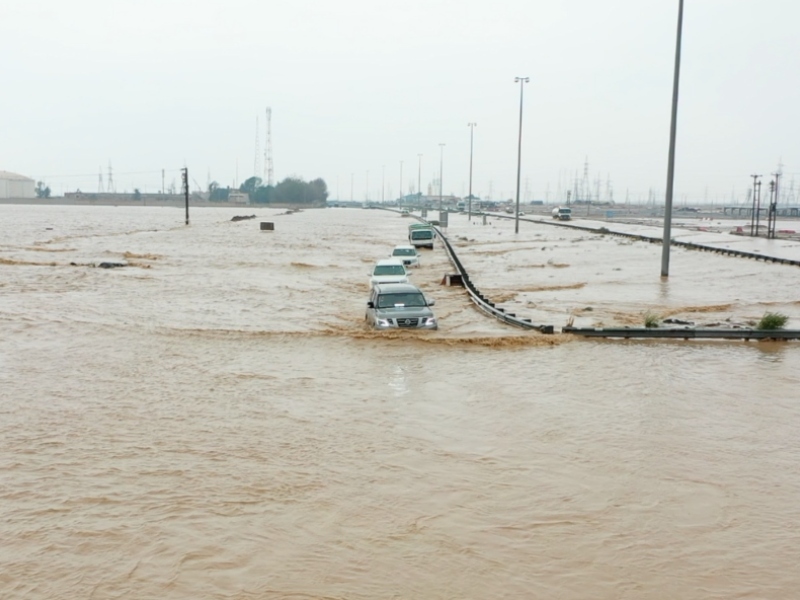 2018 flood, Kuwait / @Hamad M. Alsahli.
2018 flood, Kuwait / @Hamad M. Alsahli.
Kuwait’s urban areas are facing a growing exposure of people and assets to flash flood risks. Driven by massive urban expansion over the last few decades and a changing climate, this has now become a major threat to some urban areas within the country. The main objective of this project is to analyse the current and future flood resilience of urban areas in Kuwait including the expected increase in flood hazards as a result of climate change. Based on a forensic analysis of the 2018 flash flood in Kuwait, we focus on two specific aspects: 1) challenges and opportunities of flood risk governance and decision-making, and 2) the role of urban development and planning trends, in increasing or decreasing urban flood resilience in Kuwaiti cities.
We apply the tried and tested Post-Event Review Capability (PERC) methodology developed by Zurich Flood Resilience Alliance. In collaboration with the Zurich Flood Resilience Alliance and local partners in Kuwait university, this project will contribute to the emerging body of research on flood risk reduction and adaptation in the Arab states, create partnership and synergies among the Zurich Flood Resilience Alliance partners and local decision-makers in Kuwait, and provide local decision-makers with evidence-based information on challenges and opportunities of building urban flood resilience in Kuwait.
Principal Investigator
Swenja is Deputy Director and Head of Adaptation Research at the Grantham Research Institute on Climate Change and the Environment at LSE.
Researchers
Sara is a Research Fellow in the Grantham Research Institute on Climate Change and the Environment at LSE.
Viktor is a Research Fellow in the Grantham Research Institute on Climate Change and the Environment at LSE.
Mohammad Alsahli
Mohammad is an Associate Professor in the Department of Geography and the head of GIS and Remote Sensing Consultation Unit in College of Social Sciences at Kuwait University.
Mohammed Alroomi
Mohammed is a researcher on the project.